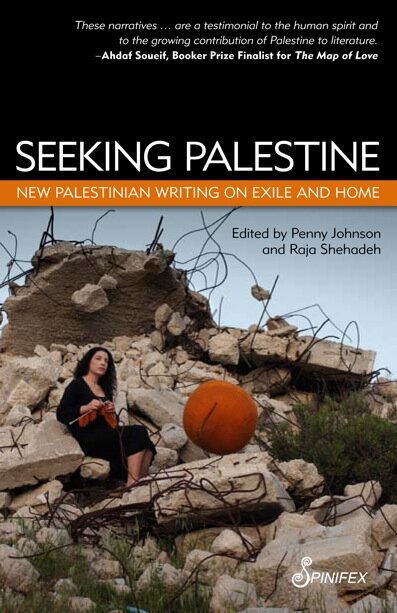Awards
2013 MEMO Palestine Book Award for the best book on Palestine in 2012
Table of Contents
Introduction: Neither Homeland Nor Exile Are Words
Suad Amiry
Nothing in My Life is Neutral
Rema Hammami
Home and Exile in East Jerusalem
Raja Shehadeh
Diary of an Internal Exile: Three Entries
Adania Shibli
Of Place, Time and Language
Susan Abul Hawa
Memories of Home in a Can of Tuna
Jean Said Makdisi
Becoming Palestinian
Murid Barghouti
The Driver Mahmoud
Sharif Almusa
Portable Absence: My Camp Re-membered
Beshara Doumani
A Song from Haifa
Fady Joudah
Palestine that Never Was: Five Poems and an Introduction
Rana Barakat
The Right to Wait: Exile, Home and Return
Emily Jacir
Running from Ramallah
Mischa Hiller
Onions and Diamonds
Karma Nabulsi
Exiled from Revolution
Lila Abu Lughod
Pushing at the Door: My Father’s Political Education, and Mine
Contributors
Reviews
From the Sydney Morning Herald, August 2012
How can an essentially sad story give such pleasure? The answer is in these narratives: these stories, memoirs, poems are a pleasure and an education; personal, vivid, original, sometimes witty, always accomplished, always honest. They are a testimonial to the human spirit, and to the growing contribution of Palestine to literature.
—Ahdaf Soueif, Booker Prize Finalist for The Map of Love
And so whilst reading, each chapter of Seeking Palestine offers a new element to the image of Palestine, weaving together an eclectic mix of writers, each offering a new lens through which to view, understand and imagine their country and exile.
—Amelia Smith, Memo Middle East Monitor
This is an extraordinarily frank, fresh and unsentimental assessment of what Palestinians are and have become. It is not only a testimony as to the strength, dedication and sticking power of Palestinian people, but also of the writers themselves.
—Selma Dabbagh, The Electronic Intifada
In these grittily poetic stories, Palestinian writers imaginatively reclaim what has been lost.
—Fiona Capp, The Age
Wry, candid, poignant, Seeking Palestine is a tribute to a people who no matter how displaced and dispossessed remain nevertheless determined.
—Rakhshanda Jalil, The Hindu
Though much of its subject matter elicits sorrow and outrage, “Seeking Palestine” is a pleasure to read since all the contributors are talented writers...The clarity and courage with which they write provides new, encouraging evidence of Palestinians’ ability to shape a better world, if only they were given the chance.
—The Jordan Times


